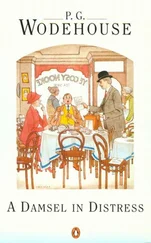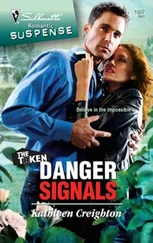‘If she must go,’ he said at last, ‘then, I hope, you will allow me to … to make your new lives less uncertain. I can provide a little money for you both …’
Miggy came down off the bed, and stood beside her mother.
‘… Before I leave, or Miggy leaves, I will arrange a … small payment.’ He was embarrassed by their stillness and their silence. ‘I must leave now …’ He stood up hastily. He was so clumsy in their house, both in his body and his speech. ‘I mean, I must go back.’ He shook both women’s hands and fled into the cottage yard. He almost ran away. Whip barked and followed him. The two roped mongrels growled as he passed. The sea air slapped his blushing, sweating face. Betrayed, betrayed, betrayed. He didn’t stop until he reached the path above the Cradle Rock.
There wasn’t any sign of Otto’s food or the napkin on the seat. They’d disappeared. One of the stones Aymer had used to weigh the napkin down had rolled, almost, onto the heart scratched in the wood, obscuring Ralph’s and Miggy’s initials. A heart of stone, Aymer thought. He looked beneath the seat. He pushed the grass aside with his boot. No crusts or fishbones there. No snubs of cheese. There were seagulls about, one-legged on rocks, their necks tucked in. Had they the strength to pull the napkin free of stones? He called out Otto’s name again. Then Miggy’s name. Then Katie’s name. Then all the swear words he knew. He was uncontrolled, despairing, angry, faint, ashamed. He’d missed Otto by a half hour at the most. He kicked the seat. He threw the napkin’s stone onto the ground. He banged his forehead with his fist. He cursed himself, out loud. Whip and seagulls echoed him.
If he hadn’t been shouting, perhaps he would have heard more clearly what he took to be a distant voice, coming off the land. He called again, ‘Otto! Otto!’ and yes, there was the faintest voice. It was the echo of his own, rebounding off the rocks. He climbed up off the path onto the headland until he had a decent view inland. The coastal granite bluffs; the bracken and the gorse; a narrow wind-break of stooping skew and thorns; the first low wall; the salty grazing land; the miles of distant fields; the moors. He ranged from left to right, searching for some sign of human life, some moving shadow. He only spotted birds and something that might have been a bending man but turned sideways to prove itself a tethered goat.
At first he thought there was a single, cussed wedge of snow, surviving in the shadows of a thorn which grew behind the nearest drystone wall, a hundred yards away. But when he saw it for the second time, it appeared to lift and change its shape, then drop and hang like washing on a line. Was that the missing napkin from Otto’s meal? It seemed to be. Its weight looked right for cloth in that low wind, and it was white and square. Its corners showed against the darker branches of the tree. Surely, Aymer thought, it didn’t walk there on its own. And it couldn’t be carried by the flimsy wind that had been blowing all that day. He wet his index finger in his mouth and held it up. What little wind there was was heading east. The napkin had gone north. ‘We have him, Whip,’ he said. ‘He’s there.’
The going wasn’t hard at first. The land was wild and wet, but Aymer made stepping-stones of granite, and even though he slipped from time to time, and had to slither once on his haunches down a mossy outcrop, he found a route towards the cloth, that white and flapping signal of distress. When he reached the dip beyond the headland though and the sea was out of sight, the soil was deeper. There were no granite stepping-stones. The ground refused to take his weight. His boots sank in. The earth expired its brackish coffin smells. His ankle turned. He fell again onto his outstretched hand. He sank up to his cuff. Aymer headed for the bracken to his right, and found firmer footing there, though the gorse that grew beyond was thicker than it looked. He had to force his way through. His trousers and his legs were spiked. The gorse snapped. The air about him smelled of coconut. Whip wasn’t happy on this walk. She barked that they should go back to the path. She ran away. She waited. Barked again. But finally she followed Aymer through the bracken and the gorse to the dry, slight rise beyond, to the thorn tree and the wall.
Aymer wedged his foot into the wall, pushed himself up on a low branch, and pulled the white cloth free. His hopes were dashed. It was too big and flimsy for a napkin. He recognized it, though. It was the sling he’d had for his bad arm. He’d flung it to the ground when he had needed both his hands to help Ralph move the Cradle Rock. He remembered how the heavy wind that Sunday had picked up the sling, turned it once or twice, then took it on a seagull flight inland.
He called for Whip. But Whip had gone. She’d scaled the wall and run across the pasture in its lee. When Aymer called she barked for him to follow her. He climbed up on the wall, and clapped his hands. Whip had her chin pressed to the grass. Her tail was wagging heavily. She rolled on her back. What had she found? Rabbit droppings, probably. A rotting crow. Manure. Something irresistible and smelly to mark her coat with. Aymer followed her. At least the pastureland was firm. He held Whip by her collar. She had rolled in something dead. The smell was unbearable. He flipped her over by her legs and wiped her back on the grass. And then he wiped his own hands on the grass. They were as smelly as the dog.
They walked up to a second, higher wall, climbed over it and then headed eastwards towards Wherrytown. To the north there was a lonely curl of smoke, a second lonely curl of hope that Otto might be found. There was a rough gate in the corner of the pasture. It led into a rutted wagon way, the quicker, more direct back path from Dry Manston which the Bowes had used the day before. Their footprints could be followed in the mud. Aymer would be happy to get back. He’d had a disappointing, empty day. Nothing he had done would change the world. The hunting party would go out the next day, and Otto would be carried back, at best half dead. Aymer Smith of Hector Smith & Sons, the meddler, the emancipationist, would be to blame. They’d shared the moment when the bolt was pulled, and he was pointing at the open door and telling Otto, ‘Go! Go! Go!’ Now they’d share the moment when the bolt was shut again.
The light was fading on that Tuesday afternoon, but Aymer was not concerned. The wagon way would lead to Wherrytown if there was any logic in the world. He only had to stumble on and run the history of the last five days through his mind; the storm, the inn, the salmon flesh, the country wife, the Cradle Rock, the African, the bruising innocence of people far from home, the transience of life and snow, the permanence of all the damage done, and finally the distant curl of smoke which beckoned to him from the north. He didn’t know what made him leave the wagon way as soon as he heard the chapel foghorn sound for Tuesday evensong. Except this was his final chance. Go now, while everybody was at prayer. Or be too late.
He concentrated on the curl of smoke, a dozen fields away. There was what looked to be a small stone hut nearby. The smoke belonged to it, it seemed. He’d walk that far, and then give up. Otto, surely, would have sought some shelter, away from the town. He would have lit a fire — and Africans were good at lighting fires from stones and bark. They hadn’t lost their ancient skills. Aymer had read the travel journals of men like Bruce and Soules, how Africans could navigate by stars, make light with bones, catch fish by hand, skin cattle with a sharpened stick, survive for weeks without a drink, speak with the birds, protect themselves from wounds and fevers with potions made from leaves. There was a narrow track which led off from the wagon way and skirted three small oblong fields before it disappeared in mud. Aymer checked the mud for footprints. There were none. Or none so far as he could see, because there was a sudden dusk and nothing could be certain in that light. Get to the smoke , he told himself. If he is anywhere, he will be at the smoke.
Читать дальше












